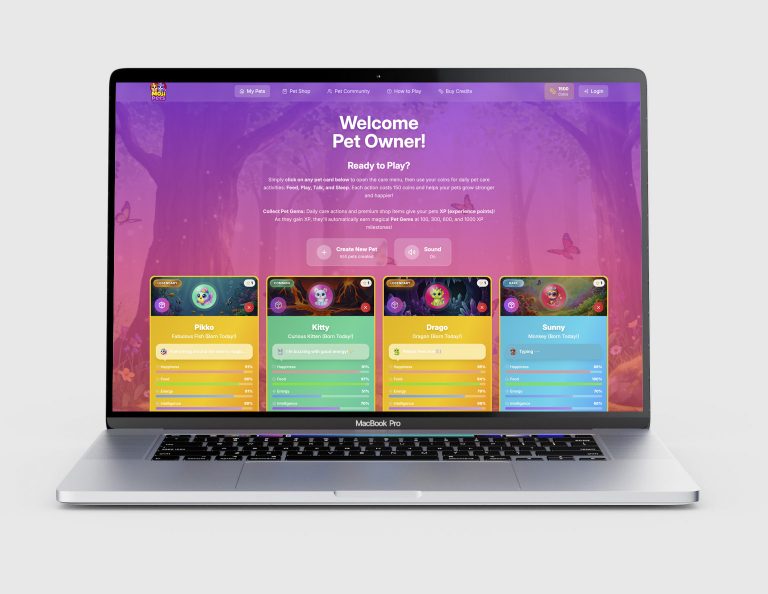Launching a new website is a thrilling milestone—whether you’re unveiling a brand, product, or platform, it’s your digital debut. But in today’s competitive online environment, simply going live isn’t enough. Without strategic Search Engine Optimisation (SEO), your site risks languishing in obscurity, buried beneath competitors in the Search Engine Results Pages (SERPs). For new websites, SEO isn’t a luxury—it’s a launchpad.
In 2025, Google’s algorithm updates have made it abundantly clear: content-rich, user-focused websites are the ones that rise fastest. This blog explores why SEO is indispensable for new site launches, how recent algorithm changes have reshaped the rules, and what you can do to establish visibility as quickly as possible.
The SEO Imperative for New Websites
When a new website goes live, it enters the digital ecosystem with zero authority, no backlinks, and limited trust signals. Search engines like Google rely on these factors to determine where your site should rank. Without SEO, your site is effectively invisible.
Here’s why SEO is essential from day one:
- Indexing and Crawlability: SEO ensures your site is structured so search engines can discover and index your pages.
- Keyword Targeting: It helps you align your content with what users are actually searching for.
- Content Relevance: SEO guides the creation of meaningful, informative content that satisfies user intent.
- Technical Performance: Fast load times, mobile responsiveness, and secure protocols (HTTPS) are all ranking factors.
- Authority Building: SEO strategies like link building and content marketing help establish your site’s credibility.
In short, SEO is the mechanism that connects your website to its audience.
2025 Algorithm Updates: A New Era of Content-First SEO
Google’s 2025 core updates—particularly those rolled out in March and June—have dramatically shifted the SEO landscape. The focus is now squarely on helpful, experience-driven content and page quality.
Key Changes You Need to Know:
- E-E-A-T Is Non-Negotiable: Google’s emphasis on Experience, Expertise, Authoritativeness, and Trustworthiness (E-E-A-T) means your content must demonstrate real-world knowledge and credibility. Thin, generic pages are being penalised.
- Content Depth Over Quantity: Sites with rich, informative content—especially those offering first-hand insights—are outperforming those with keyword-stuffed or programmatic pages.
- Semantic Search and AI Overviews: Google now uses AI to generate topic overviews. Structured, well-written content is more likely to be featured, giving new sites a chance to leapfrog competitors.
- Page Experience Signals: Core Web Vitals—like load speed, interactivity, and visual stability—are more important than ever. Sites that offer smooth, mobile-friendly experiences are rewarded.
- Zero-Click Search and Voice Optimisation: With the rise of AI-generated answers and voice search, your content must be concise, clear, and structured to be surfaced in these formats.
Fast-Tracking SERP Visibility: SEO Strategies That Work
To establish your new website quickly in SERPs, you need a multi-pronged SEO strategy that aligns with Google’s latest expectations.
1. Start with Technical SEO
Before you publish a single blog post, ensure your site is technically sound:
- Use a clean, crawlable site architecture.
- Submit your sitemap to Google Search Console.
- Implement HTTPS and ensure fast load times.
- Optimise for mobile-first indexing.
These foundational elements are essential for search engines to discover and trust your site.
2. Create Content That Solves Real Problems
Google’s 2025 updates favour content that demonstrates real experience and user value. Avoid generic articles and instead:
- Write detailed guides, how-tos, and case studies.
- Share insights from your own work or industry experience.
- Use clear headings, bullet points, and short paragraphs for readability.
For example, if you’re launching a property investment site, don’t just write “What Is Buy-to-Let?”—write “How I Achieved 7% ROI on My First Buy-to-Let Investment”.
3. Target Long-Tail Keywords
New websites can’t compete immediately for high-volume keywords. Instead, focus on long-tail phrases that reflect specific user intent:
- “Best CRM for small UK businesses”
- “How to optimise Shopify checkout for conversions”
- “Affordable branding agencies in Manchester”
These terms are less competitive and more likely to convert.
4. Build Internal Linking Early
Internal links help search engines understand your site structure and distribute authority. They also improve user navigation. Link from blog posts to service pages, from FAQs to contact forms, and between related articles.
5. Secure Authoritative Backlinks
Backlinks remain a powerful ranking factor. For new sites:
- Submit guest posts to relevant industry blogs.
- Get listed in UK business directories.
- Reach out to partners or suppliers for link exchanges.
- Create shareable assets like infographics or research reports.
Avoid spammy link schemes—Google’s updates are cracking down hard on unnatural link profiles.
6. Leverage Schema Markup
Structured data helps Google understand your content and display rich results. Use schema for:
- Articles
- FAQs
- Products
- Reviews
- Local business details
This can improve click-through rates and visibility.
7. Monitor and Adapt
Use tools like Google Search Console, GA4, and Semrush to track performance. Look for:
- Pages with high impressions but low clicks (optimise titles and meta descriptions).
- Keywords driving traffic (expand content around them).
- Crawl errors or indexing issues (fix promptly).
SEO is iterative—especially for new sites. Regular updates and refinements are key.
Common Pitfalls to Avoid
Many new websites make avoidable mistakes that delay their rise in SERPs:
- Launching with thin content: A homepage and a contact form aren’t enough. Aim for at least 10–15 pages of meaningful content at launch.
- Ignoring local SEO: If you serve a UK audience, optimise for local search terms and register with Google Business Profile.
- Overusing keywords: Keyword stuffing is penalised. Use natural language and focus on user intent.
- Neglecting analytics: Without data, you’re flying blind. Set up tracking from day one.
SEO Success Stories: What Works in 2025
Recent winners from the March and June 2025 updates include:
- Uniqlo: Boosted visibility by 76% thanks to rich product content and user reviews.
- Letterboxd: Gained traction through community-driven, experience-based film reviews.
- YouTube and Wikipedia: Continued dominance due to structured, informative content and high trust signals.
These examples show that depth, clarity, and authenticity are the new SEO currency.
SEO Is Your Launch Strategy
In 2025, SEO is no longer just about keywords and backlinks—it’s about earning trust, demonstrating expertise, and delivering value. For new websites, this means starting strong with content that matters, technical excellence, and a clear understanding of user intent.
Get in-touch us to find out how we can dramatically improve your serch engine results via effective SEO strategies.




